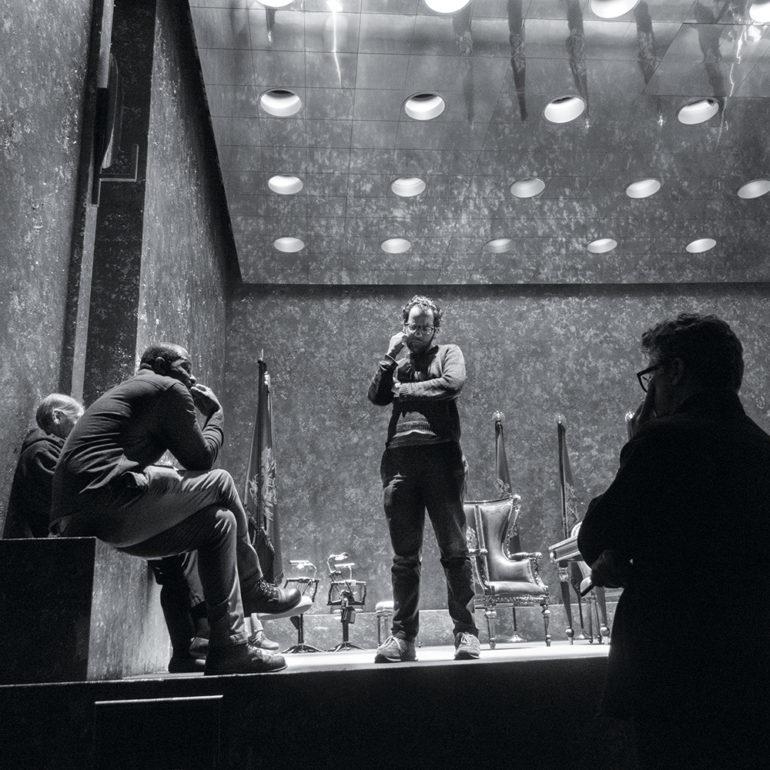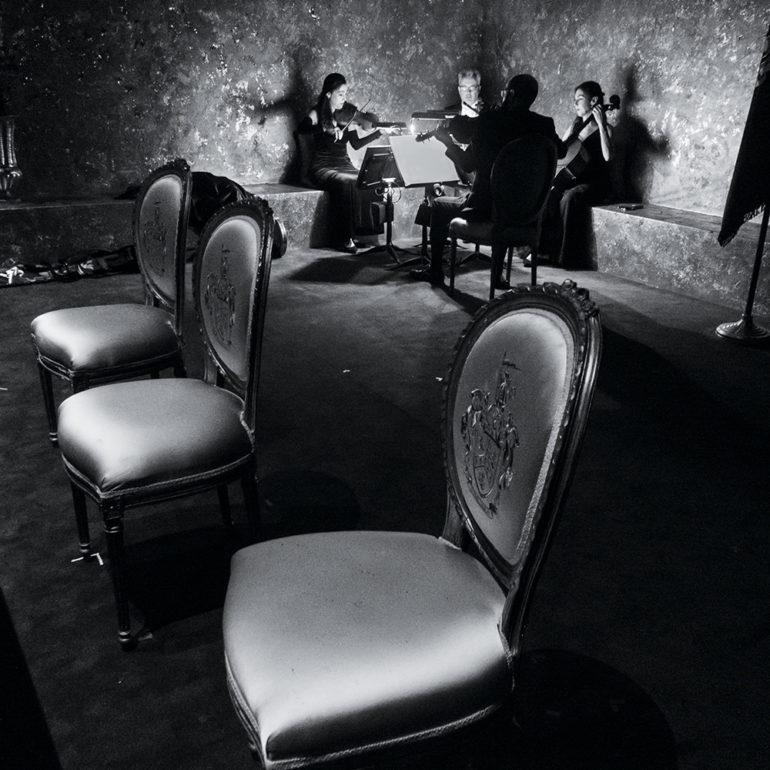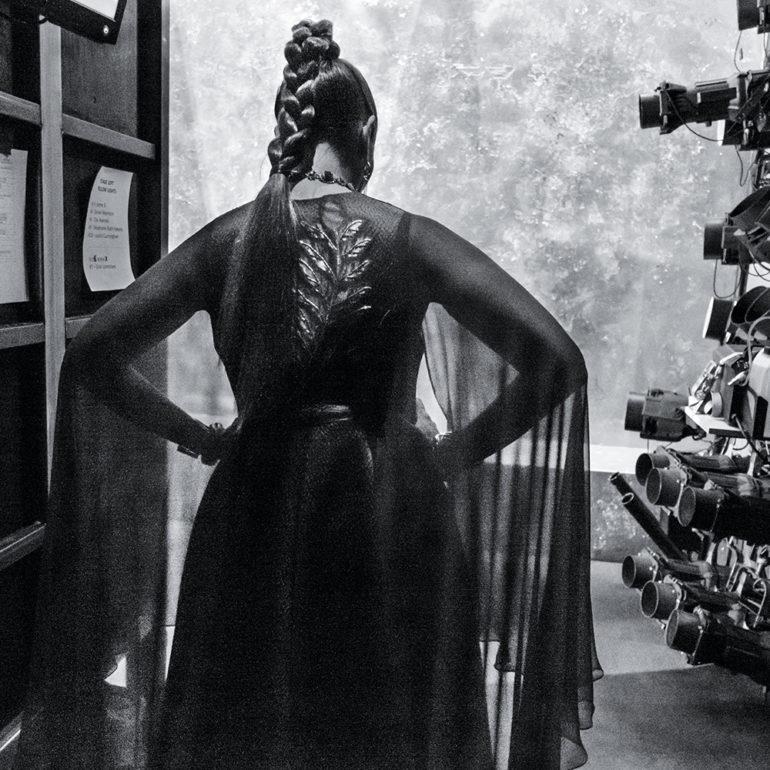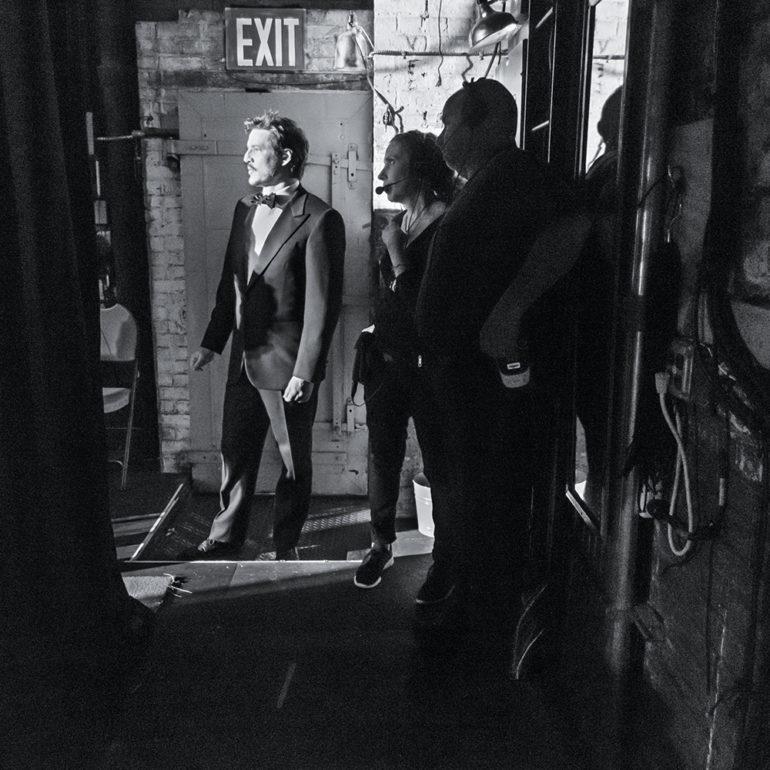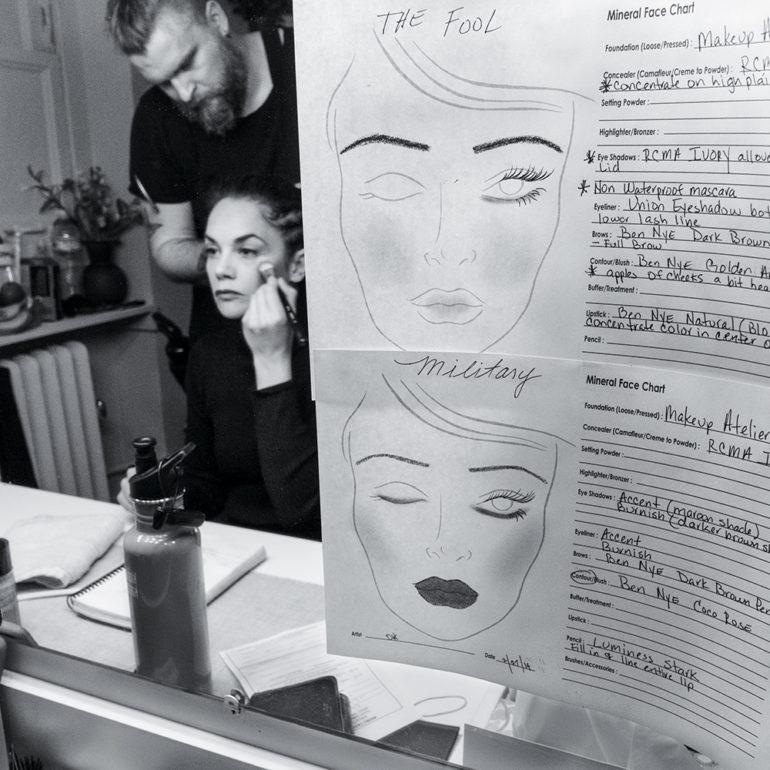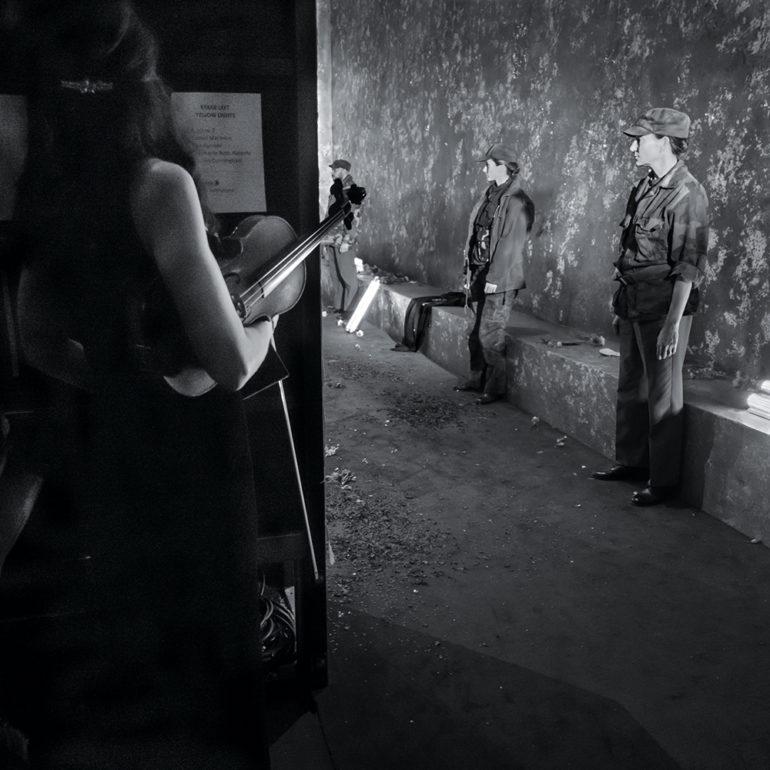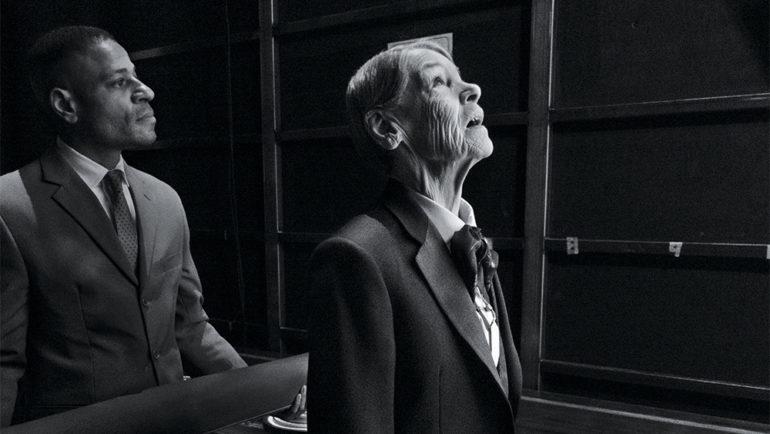Go Behind the Scenes of Broadway’s ‘King Lear’ Starring Glenda Jackson
By Brent Lang
LOS ANGELES (Variety.com) – Pedro Pascal lets out a shout of pure joy.
“Yes!” he exclaims, looking down at his text messages. “He did it.” It turns out that the “Game of Thrones” star’s younger brother has just been accepted into Juilliard, the prestigious performing arts conservatory. Pascal’s excitement temporarily halts this Tuesday dress rehearsal for a new Broadway production of “King Lear,” as he accepts congratulations and high-fives from cast and crew alike.
It’s a much-needed break for the creative team behind the revival of Shakespeare’s classic story of a haughty king whose feud with his three daughters devolves into violence and lunacy. The nearly four-hour show is a famously grueling experience, requiring its actors to make love and war on a nightly basis. In the case of this particular “,” it’s an endurance act that’s even more astounding considering that the star of the production, Glenda Jackson, is railing at the heavens for eight shows a week at the age of 82.
“It’s a great privilege,” Jackson says during an interview several weeks after that rehearsal. “It’s one of those parts that’s so extraordinary because Lear has these moments of self-revelation that are truly astonishing. He has the courage to see things as they really are.”
Jackson calls Shakespeare “the most contemporary of playwrights.” Though the play was written in 1606, the actress marvels at its psychological acuity. “All too late, [Lear] discovers what love really is,” says Jackson.
Director Sam Gold sees contemporary parallels between Shakespeare’s mad king and the current political ruling class. It’s a nod toward Trumpism that is alluded to in the gilded furnishings that adorn the Lear family’s palaces and the power suits and gowns that the members of court wear.
“At its core, the play is about wealth disparity and an egotistical leader who undergoes a period of self-realization that comes too late and requires a lot of people to die first,” says Gold. “It’s hard not to think about the world I live in, with climate change and autocrats and the corrupting influence of power.”
As Jackson, Gold and the rest of the cast and crew put their own spin on this classic play, Variety was invited into the rehearsal room and backstage during a preview performance. These photos provide a rare look at the work it takes to mount and perform a major theatrical production.
Waiting for the Storm
Director Sam Gold, and John Douglas Thompson, who plays Lear’s loyal servant, the Earl of Kent, take a break before rehearsing the storm sequence. “A major aspect of this play is who speaks truth to power and who doesn’t,” says Gold. “This is essentially about a king who has a temper tantrum when he can’t keep 100 knights at his daughter’s house, and he heads out into a storm and goes mad.” Jackson, informal in a black hoodie with a “King Lear” logo emblazoned on the back, previously played the role of the mad king in a 2016 production in London. It marked her return to the stage after quitting acting to spend 23 years as a member of Parliament. That earlier show was directed by Deborah Warner in a more pared-down production.
Rich Rewards
Gold has leaned into the opulence of Lear’s court, casting the king as the head of a royal family more concerned with the trappings of power than with ruling justly. “It’s a world of superfluousness,” says the director. “I grew up in New York in the 1980s. It was this Wall Street era and this Roy Cohn era that symbolized the beginning of a new kind of corruption in corporate America.” The current radical reinterpretation of “King Lear” includes a string quartet playing work by Philip Glass. Not only does the music underscore climactic moments in the drama — rising and falling in intensity as armies clash, rulers lose their grip on reality and family members betray one another — but the musicians appear onstage, looking like a tuxedoed and bejeweled Greek chorus.
Lady in Waiting
Elizabeth Marvel takes a breath before entering for a big moment. The “House of Cards” star plays Goneril, Lear’s tightly wound daughter, who becomes obsessed with Pascal’s Edmund. The cast is an impressive array of Hollywood stars and stage actors, boasting Tony winners such as Jayne Houdyshell alongside TV and film A-listers including Pascal and Ruth Wilson (“The Affair”). “There’s not a bad part in it,” says Jackson. There have been a number of hot-ticket Lears in New York in recent years. Ian McKellen, Frank Langella and John Lithgow are just a few of the prominent actors who have put their own spin on Shakespeare’s most famous king. This production is different in that Lear is portrayed by a woman. “It’s an unbelievably modern idea of the play,” says producer Scott Rudin. “Glenda has somehow transcended any idea of gender.” For her part, Jackson says that when she would visit constituents at nursing homes as a member of Parliament, she noticed something startling: “As we get older those harshly drawn boundaries of gender fray.”
Battles of the Bastard
Pascal, who plays Edmund, the illegitimate son of the Earl of Gloucester, waits to enter stage left. Most productions depict Edmund as an amoral schemer, willing to betray his half-brother Edgar to curry favor and steal his inheritance. Pascal definitely leans into the villainy, making wry asides to the audience, but Gold also emphasizes the caste system and wealth disparity that has caused Edmund to bend the rules. It’s a lesson that Edgar is also forced to learn when he is cast out of court and assumes the role of a mad beggar.
Color Coordination
Wilson, who plays the dual role of the Fool and Cordelia, Lear’s most loyal daughter, applies her makeup backstage. Critics loved her take on the part, handing her a second Tony Award nomination. Gold says Wilson and Jackson fit nicely together. “Glenda’s very formidable,” says the director. “She has a strong point of view onstage, but she’s so alive with the other actors. There are times with Ruth, when Ruth is playing her Fool character, that she’s so loose.”
Fiddling With the Past
“King Lear” was written during the reign of King James I, but Gold thinks that the story about the corrupting influence of wealth and power is sharply attuned to our current era. At a time when the gulf between the haves and the have-nots is growing ever wider, populist outrage is building and a self-described billionaire leads the “free world,” Lear and his grasping, backstabbing clan of strivers and social climbers continues to resonate. “It’s always a good time to do Shakespeare’s tragedies,” says Gold. “Every time you revisit one of his plays, it speaks to our time. They’re such deep plays that mine the darkest parts of our humanity.”
